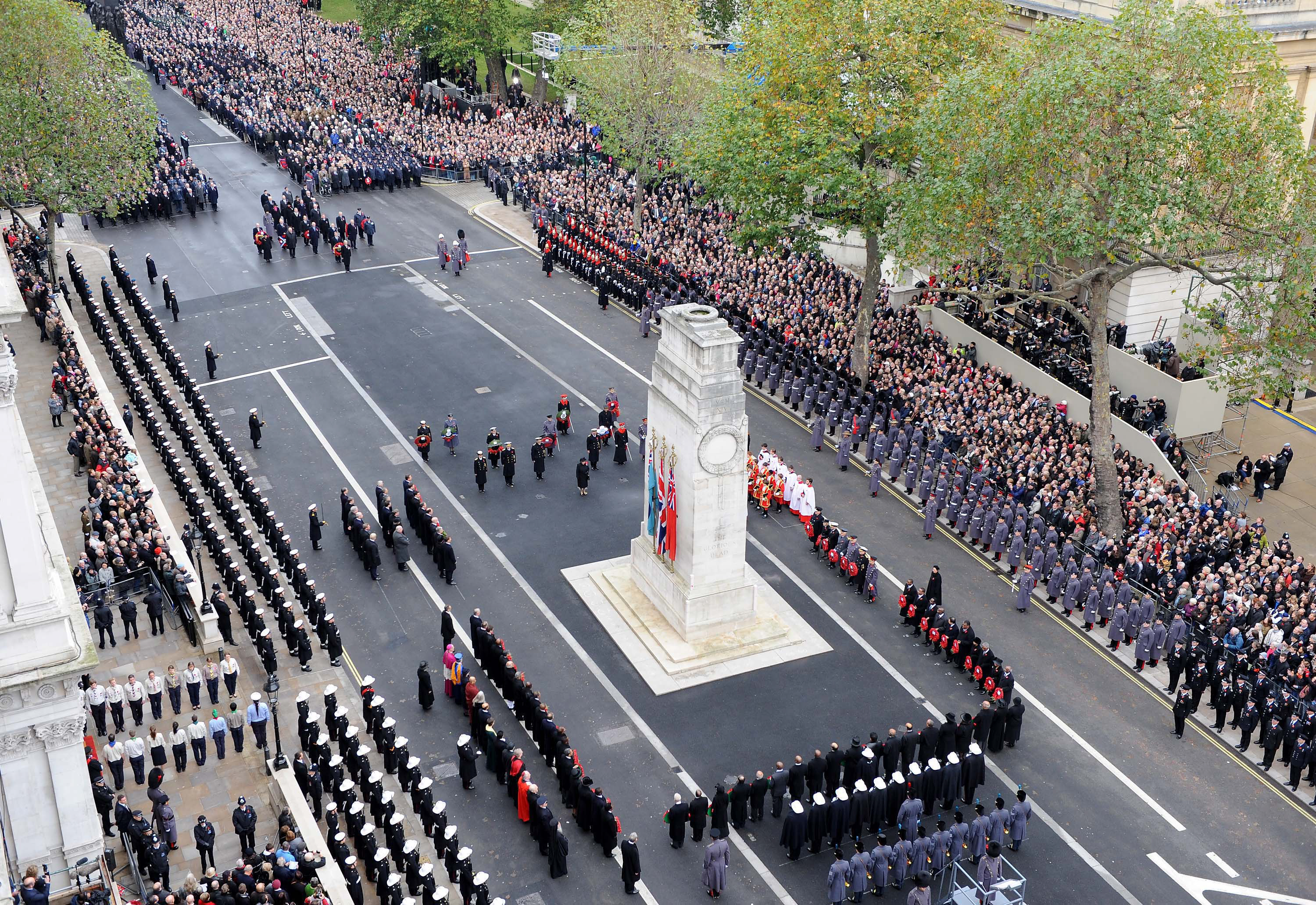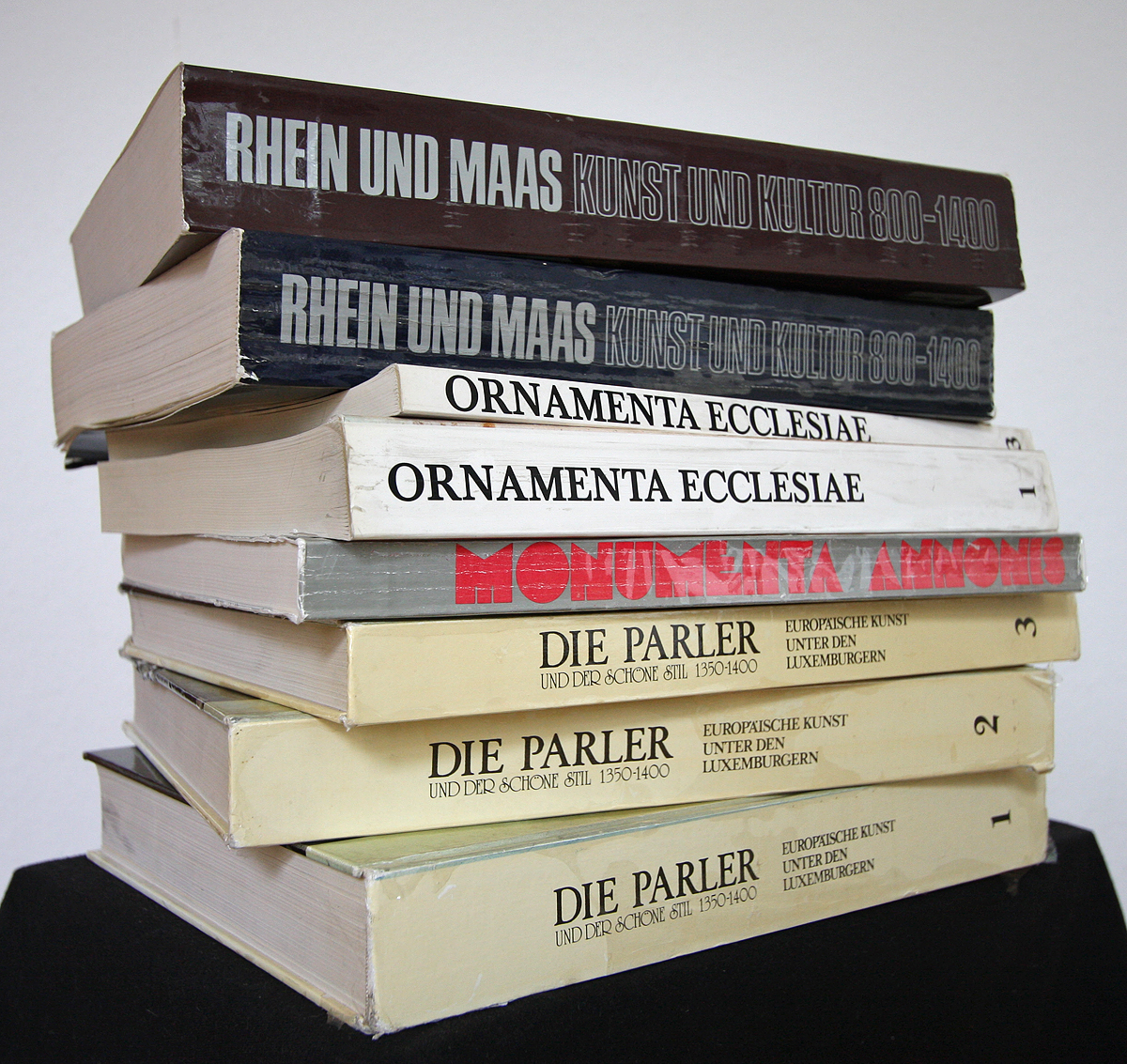|
Laurence Binyon
Robert Laurence Binyon, CH (10 August 1869 – 10 March 1943) was an English poet, dramatist and art scholar. Born in Lancaster, England, his parents were Frederick Binyon, a clergyman, and Mary Dockray. He studied at St Paul's School, London and at Trinity College, Oxford, where he won the Newdigate Prize for poetry in 1891. He worked for the British Museum from 1893 until his retirement in 1933. In 1904 he married the historian Cicely Margaret Powell, with whom he had three daughters, including the artist Nicolete Gray. Moved by the casualties of the British Expeditionary Force in 1914, Binyon wrote his most famous work "For the Fallen", which is often recited at Remembrance Sunday services in the UK, Australia, New Zealand and Canada. In 1915, he volunteered as a hospital orderly in France and afterwards worked in England, helping to take care of the wounded of the Battle of Verdun. He wrote about these experiences in ''For Dauntless France''. After the war, he continued ... [...More Info...] [...Related Items...] OR: [Wikipedia] [Google] [Baidu] |
William Strang
William Strang (13 February 1859 – 12 April 1921) was a Scottish painter and printmaker, notable for illustrating the works of John Bunyan, Bunyan, Samuel Taylor Coleridge, Coleridge and Rudyard Kipling, Kipling. Early life Strang was born at Dumbarton, the son of Peter Strang, a builder, and was educated at the Dumbarton Academy. For fifteen months after leaving school he worked in the counting-house of a firm of shipbuilders, then in 1875, when he was sixteen, went to London. There he studied art under Alphonse Legros at the Slade School for six years. Strang had great success as an etching, etcher and became assistant master in the etching class. He was one of the founding members of the Royal Society of Painter-Printmakers, Royal Society of Painter-Etchers, and his work was part of its first exhibition in 1881. Some of his early plates were published in ''The Portfolio'' and other art magazines. Work He worked in many techniques: etching, drypoint, mezzotint, sand-grou ... [...More Info...] [...Related Items...] OR: [Wikipedia] [Google] [Baidu] |
Remembrance Sunday
Remembrance Sunday is held in the United Kingdom as a day to commemorate the contribution of British and Commonwealth military and civilian servicemen and women in the two World Wars and later conflicts. It is held on the second Sunday in November (the Sunday nearest to 11 November, Armistice Day, the anniversary of the end of hostilities in World War I in 1918). Remembrance Sunday, within the Church of England, falls in the liturgical period of Allsaintstide. It is marked by ceremonies at local war memorials in most cities, towns and villages, attended by civic dignitaries, ex-servicemen and -women (many are members of the Royal British Legion and other veterans' organisations), members of local armed forces regular and reserve units (Royal Navy and Royal Naval Reserve, Royal Marines and Royal Marines Reserve, Army and Territorial Army, Royal Air Force and Royal Auxiliary Air Force), military cadet forces (Sea Cadet Corps, Army Cadet Force and Air Training Corps as well ... [...More Info...] [...Related Items...] OR: [Wikipedia] [Google] [Baidu] |
Ezra Pound
Ezra Weston Loomis Pound (30 October 1885 – 1 November 1972) was an expatriate American poet and critic, a major figure in the early modernist poetry movement, and a Fascism, fascist collaborator in Italy during World War II. His works include ''Ripostes'' (1912), ''Hugh Selwyn Mauberley'' (1920), and his 800-page Epic poetry, epic poem, ''The Cantos'' (c. 1917–1962). Pound's contribution to poetry began in the early 20th century with his role in developing Imagism, a movement stressing precision and economy of language. Working in London as foreign editor of several American literary magazines, he helped discover and shape the work of contemporaries such as T. S. Eliot, Ernest Hemingway, and James Joyce. He was responsible for the 1914 serialization of Joyce's ''A Portrait of the Artist as a Young Man'', the 1915 publication of Eliot's "The Love Song of J. Alfred Prufrock", and the serialization from 1918 of Joyce's ''Ulysses (novel), Ulysses''. Hemingway wrote ... [...More Info...] [...Related Items...] OR: [Wikipedia] [Google] [Baidu] |
Imagism
Imagism was a movement in early-20th-century Anglo-American poetry that favored precision of imagery and clear, sharp language. It is considered to be the first organized modernist literary movement in the English language. Imagism is sometimes viewed as "a succession of creative moments" rather than a continuous or sustained period of development. The French academic René Taupin remarked that "it is more accurate to consider Imagism not as a doctrine, nor even as a poetic school, but as the association of a few poets who were for a certain time in agreement on a small number of important principles".Taupin, René (1929). ''L'Influence du symbolism francais sur la poesie Americaine (de 1910 a 1920)''. Paris: Champion. Translation (1985) by William Pratt and Anne Rich. New York: AMS. The Imagists rejected the sentiment and discursiveness typical of Romantic and Victorian poetry. In contrast to the contemporary Georgian poets, who were generally content to work within that tr ... [...More Info...] [...Related Items...] OR: [Wikipedia] [Google] [Baidu] |
Campbell Dodgson
Campbell Dodgson, CBE DLitt Hon RE (13 August 1867 – 11 July 1948) was a British art historian and museum curator. He was the Keeper of Prints and Drawings at the British Museum in 1912–32. Biography Student Campbell Dodgson was the eighth and last child of William Oliver Dodgson, a London stockbroker, and Lucy Elizabeth Smith, daughter of Henley Smith who owned the Priory on the Isle of Wight which had been passed into the Grose-Smith family after the death of Sir Nash Grose. He was a distant cousin of Charles Lutwidge Dodgson, better known as author Lewis Carroll. His close relatives included his brother Edward Spencer Dodgson, his nephew the artist John Arthur Dodgson, and his great-nephew the British composer and broadcaster Stephen Cuthbert Dodgson. Dodgson was a scholar at Winchester, 1880–86, and New College, Oxford University, 1886–91, where he was listed in the directory as having studied previously at Winchester College, and the seventh son of William ... [...More Info...] [...Related Items...] OR: [Wikipedia] [Google] [Baidu] |
Monographs
A monograph is a specialist work of writing (in contrast to reference works) or exhibition on a single subject or an aspect of a subject, often by a single author or artist, and usually on a scholarly subject. In library cataloging, ''monograph'' has a broader meaning—that of a nonserial publication complete in one volume (book) or a definite number of volumes. Thus it differs from a serial or periodical publication such as a magazine, academic journal, or newspaper. In this context only, books such as novels are considered monographs.__FORCETOC__ Academia The English term "monograph" is derived from modern Latin "monographia", which has its root in Greek. In the English word, "mono-" means "single" and "-graph" means "something written". Unlike a textbook, which surveys the state of knowledge in a field, the main purpose of a monograph is to present primary research and original scholarship ascertaining reliable credibility to the required recipient. This research is pre ... [...More Info...] [...Related Items...] OR: [Wikipedia] [Google] [Baidu] |
Exhibition Catalogue
There are two types of exhibition catalogue (or exhibition catalog): a printed list of exhibits at an art exhibition; and a directory of exhibitors at a trade fair or business-to-business event. Art or museum exhibition catalogues Catalogues for art or museum exhibitions may range in scale from a single printed sheet to a lavish hardcover "coffee table book". The advent of cheap colour-printing in the 1960s transformed what had usually been simple "handlists" with several works to each page into large scale "descriptive catalogues" that are intended as both contributions to scholarship and books likely to appeal to many general readers. The catalogues for exhibitions held at a museum are now often far more detailed than the catalogues of their permanent collections. In the early 21st century, exhibitions that gather items from other institutions (museums, galleries, libraries, etc.) and that are elaborately publicized very often have catalogues in the form of substantial book ... [...More Info...] [...Related Items...] OR: [Wikipedia] [Google] [Baidu] |
Honour Moderations
Honour Moderations (or ''Mods'') are a set of examinations at the University of Oxford at the end of the first part of some degree courses (e.g., Greats or '' Literae Humaniores''). Honour Moderations candidates have a class awarded (hence the 'honours'). However, this does not count towards the final degree. In other courses, ''Prelims'' (i.e., preliminary examinations) are the first set of examinations but have no class awarded for them. These first examinations are termed 'First Public Examinations'. Having passed the First Public Examinations, students take a course leading to the 'Second Public Examinations', more commonly known as ''Finals''. ''Finals'' are held at the end of all first degree courses at Oxford for arts subjects and may be split into examinations after the second, third and, if applicable, fourth year for some science subjects. Honour Moderations in Classics has been called one of the hardest examinations in the world. However, in recent years, the subject m ... [...More Info...] [...Related Items...] OR: [Wikipedia] [Google] [Baidu] |
Classics
Classics or classical studies is the study of classical antiquity. In the Western world, classics traditionally refers to the study of Classical Greek and Roman literature and their related original languages, Ancient Greek and Latin. Classics also includes Greco-Roman philosophy, history, archaeology, anthropology, art, mythology and society as secondary subjects. In Western civilization, the study of the Greek and Roman classics was traditionally considered to be the foundation of the humanities, and has, therefore, traditionally been the cornerstone of a typical elite European education. Etymology The word ''classics'' is derived from the Latin adjective '' classicus'', meaning "belonging to the highest class of citizens." The word was originally used to describe the members of the Patricians, the highest class in ancient Rome. By the 2nd century AD the word was used in literary criticism to describe writers of the highest quality. For example, Aulus Gellius, in his '' ... [...More Info...] [...Related Items...] OR: [Wikipedia] [Google] [Baidu] |
London And Birmingham Railway
The London and Birmingham Railway (L&BR) was a railway company in the United Kingdom, in operation from 1833 to 1846, when it became part of the London and North Western Railway (L&NWR). The railway line which the company opened in 1838, between London and Birmingham, was the first intercity line to be built into London. It is now the southern section of the West Coast Main Line. The line was engineered by Robert Stephenson. It started at Euston Station in London, went north-west to Rugby, where it turned west to Coventry and on to Birmingham. It terminated at Curzon Street Station, which it shared with the Grand Junction Railway (GJR), whose adjacent platforms gave an interchange with full connectivity (with through carriages) between Liverpool, Manchester and London. History Early plans The railway engineer John Rennie proposed a railway line from London to Birmingham in 1823, and formed a company to build it by a route through Oxford and Banbury, a route later taken ... [...More Info...] [...Related Items...] OR: [Wikipedia] [Google] [Baidu] |
The Blitz
The Blitz was a German bombing campaign against the United Kingdom in 1940 and 1941, during the Second World War. The term was first used by the British press and originated from the term , the German word meaning 'lightning war'. The Germans conducted mass air attacks against industrial targets, towns, and cities, beginning with raids on London towards the end of the Battle of Britain in 1940 (a battle for daylight air superiority between the Luftwaffe and the Royal Air Force over the United Kingdom). By September 1940, the Luftwaffe had lost the Battle of Britain and the German air fleets () were ordered to attack London, to draw RAF Fighter Command into a battle of annihilation.Price 1990, p. 12. Adolf Hitler and Reichsmarschall Hermann Göring, commander-in-chief of the Luftwaffe, ordered the new policy on 6 September 1940. From 7 September 1940, London was systematically bombed by the Luftwaffe for 56 of the following 57 days and nights. Most notable was a large dayli ... [...More Info...] [...Related Items...] OR: [Wikipedia] [Google] [Baidu] |
Divine Comedy
The ''Divine Comedy'' ( it, Divina Commedia ) is an Italian narrative poem by Dante Alighieri, begun 1308 and completed in around 1321, shortly before the author's death. It is widely considered the pre-eminent work in Italian literature and one of the greatest works of world literature. The poem's imaginative vision of the afterlife is representative of the medieval worldview as it existed in the Western Church by the 14th century. It helped establish the Tuscan language, in which it is written, as the standardized Italian language. It is divided into three parts: ''Inferno'', ''Purgatorio'', and '' Paradiso''. The narrative takes as its literal subject the state of the soul after death and presents an image of divine justice meted out as due punishment or reward, and describes Dante's travels through Hell, Purgatory, and Heaven. Allegorically, the poem represents the soul's journey towards God, beginning with the recognition and rejection of sin (''Inferno''), foll ... [...More Info...] [...Related Items...] OR: [Wikipedia] [Google] [Baidu] |








